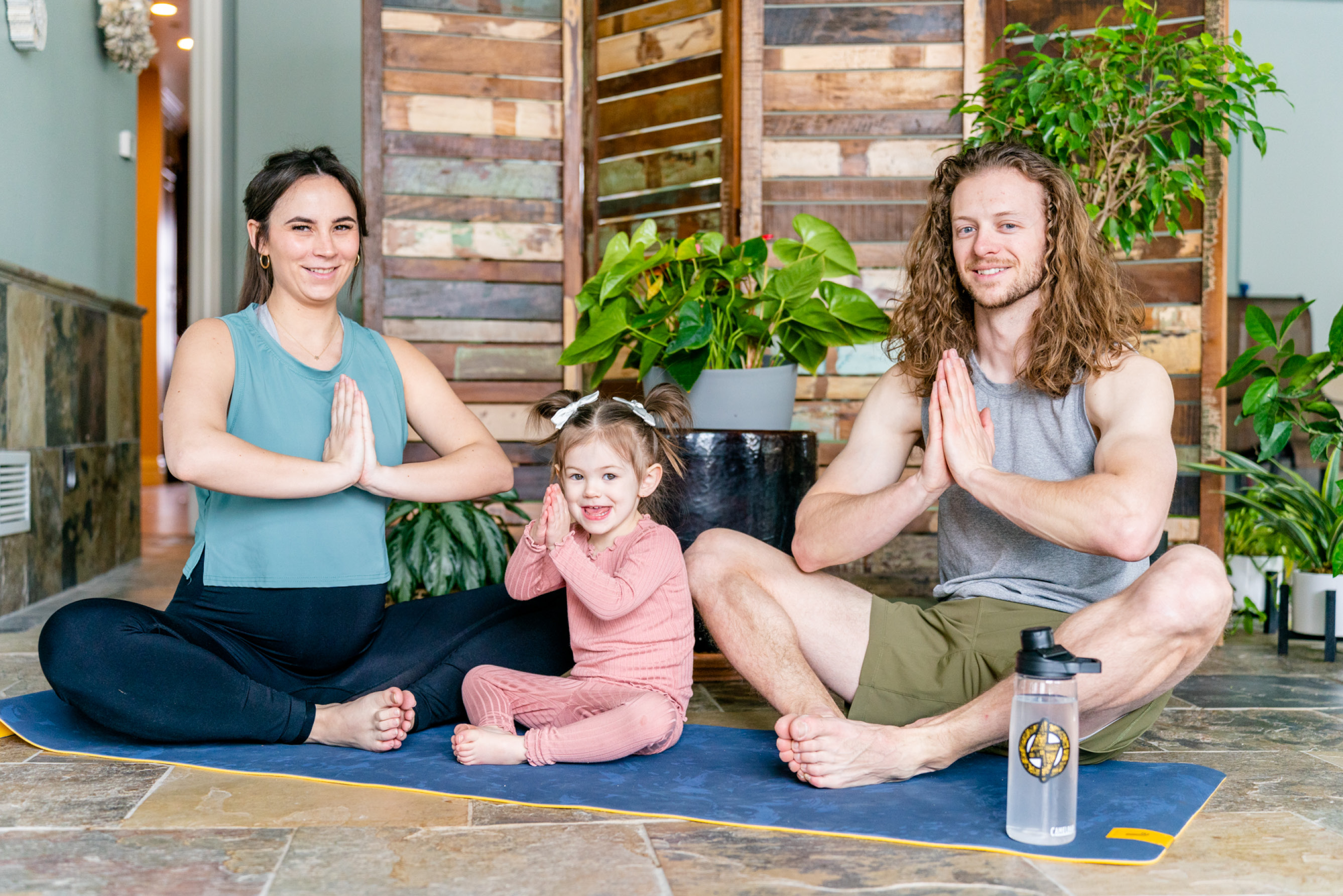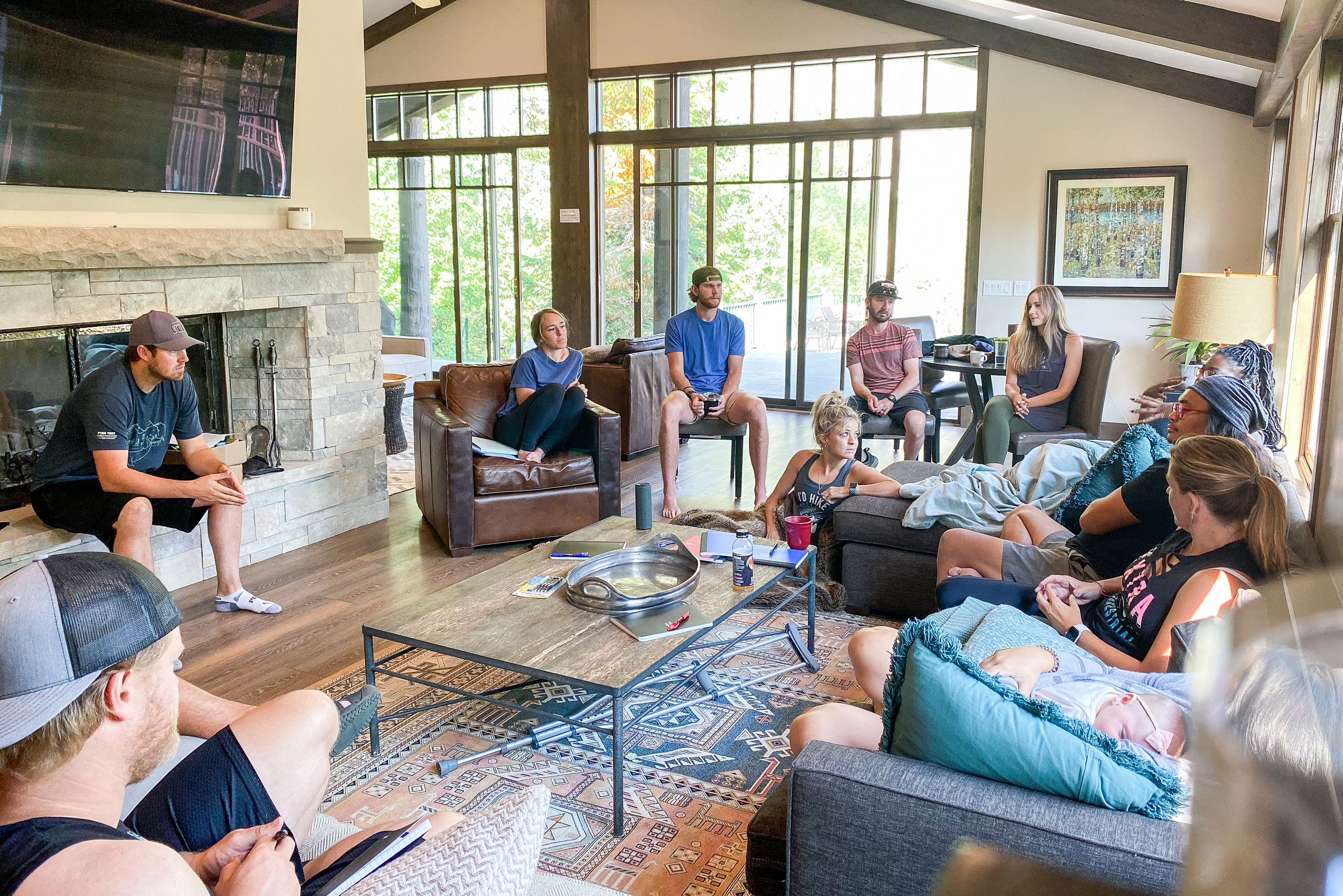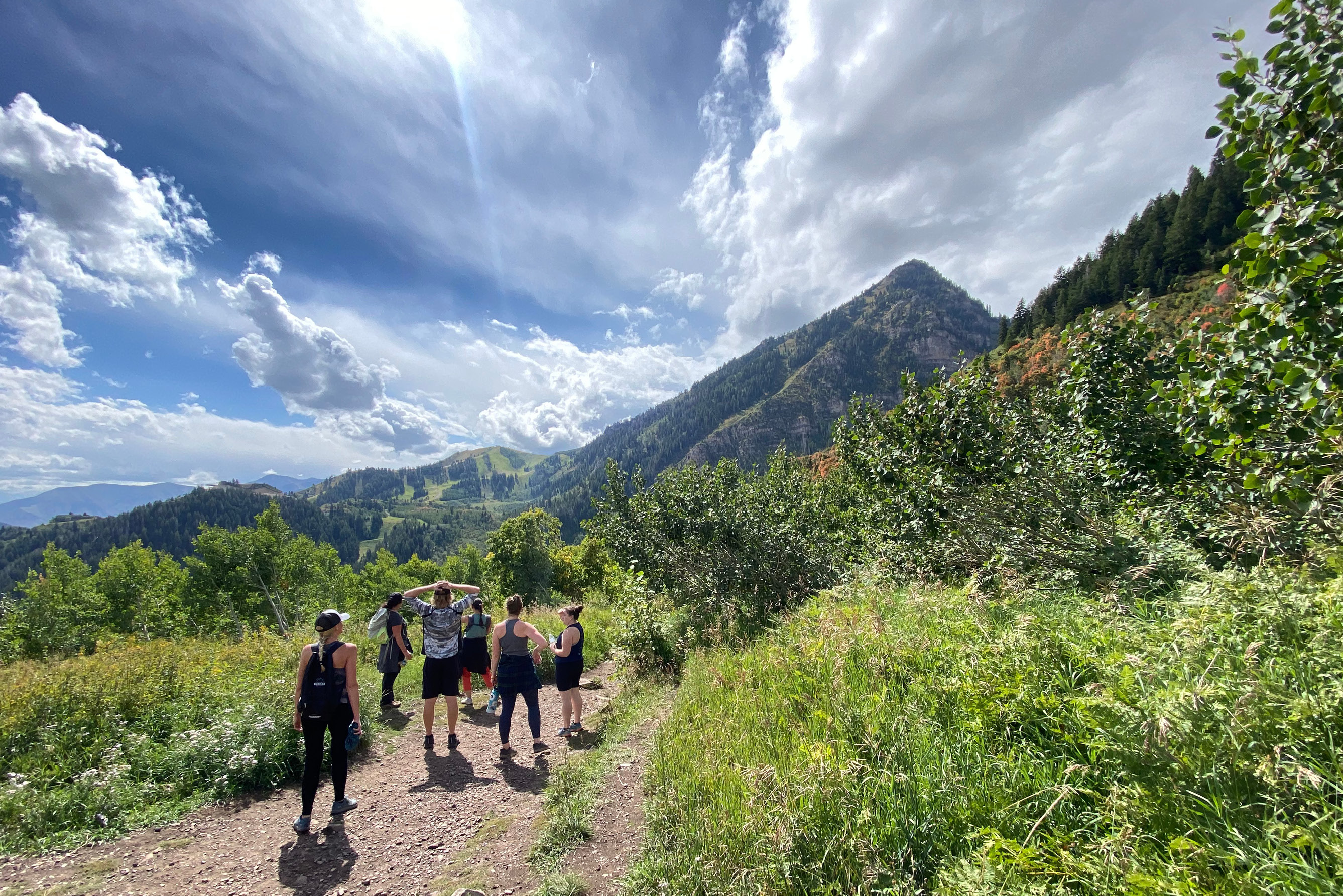If we had to sum up what we believe to be the whole point of life…we’d say that it’s to become more awake and aware.
Last August, some of the Redmond culture team members and team leaders spent a few days in Lake Tahoe with Dewitt Jones, a former National Geographic photographer and speaker whose videos we’ve loved at Redmond for decades.
After a heart attack a few years ago, Dewitt was unable to travel and mostly stayed home in his house on Moloka‘i. He wasn’t up for his usual long walks along the beach, but he built up to walking up and down his driveway each day. On his daily driveway excursions, he started noticing things he’d never seen before. A new flower, a tree, a rock. He even documented the blooming and dying of a beautiful fern. He later said “My driveway is amazing!” And this is coming from a man who’s been all over the world and photographed some of the most incredible sights ever beheld.
If that wasn’t enough, every evening, an alarm goes off on his wrist watch to remind him to go outside and look at stars. Sometimes, it’s as simple as that: set a timer on your watch or phone to remind you to tune in!
In our time with Dewitt, a theme emerged: The point of life is to become more awake and aware.
But what does this even mean? Awake and aware of what, exactly?
We mean being awake and aware of the abundance, possibilities, and opportunities all around you. Being awake and aware means knowing yourself, seeing others, being present, and getting good at finding the gift in the moment, wherever you are.
Yeeeeeeaaah, that sounds really hard. Why go through the effort? So why does this matter?
How Being Awake and Aware Helps…Well, Everything

The more awake and aware you are, the closer you are to reaching your potential. You become more effective. But perhaps the greatest and simplest advantage is that when you see the possibilities, opportunities, and abundance around you, you’ll feel more abundant. You’ll be open to more possibilities. And you’ll take more opportunities.
This is how our ability to see affects our ability to do. You have to believe it to see it.
When you’re more awake and aware, you’ll feel less annoyed at everyday inconveniences and mundane tasks (or at least, notice when you’re getting annoyed and get curious about it).
You’ll be more patient with people in general. Instead of only seeing the tip of the iceberg, you’ll start to look below the surface. Instead of ONLY noticing the tip of the iceberg—results, behaviors, and attitudes—you’ll start to get curious about what drives those things. Being awake and aware opens you up to compassion and empathy. You’ll work better with others because when we see each other, we can work together.
There are signs all around us that the universe is conspiring for our good. Being awake and aware means watching for those signs.
We can become more aware of the ripples of our actions and how we impact the world (though we can never know the full extent of our impact).
Finally, the more awake and aware you are, the more open you’ll be to profound truths. You’ll think deeper and find more meaning all around you.
That’s a lot, right? And these are only some of the benefits.
How to Become More Awake and Aware
Becoming awake and aware probably involves investing in a meditation cushion, waking up at 4am, and racking up travel expenses to get to a distant, isolated mountaintop, right?
Nope!
Becoming awake and aware is a spiritual journey that looks different for everyone, but it’s also available to everyone.
Monks of all different denominations strive to do this through meditation, service, and by being present in everyday activities like cleaning, cooking, and gardening.
A lot take this journey through religion, but you don’t need to go to church or believe in a defined higher power.
Many people take this journey by traveling, but you don’t have to leave home.
In fact, your everyday life is the perfect school. It’s easy to be more alert and aware in a place you’ve never been because it’s all new. It’s also easy if you completely immerse yourself in a place where everyone is on the same path. (This is why monasteries, ashrams, and meditation retreats are a thing!)
But in the everyday, when things feel familiar, mundane, when things don’t even register because you’ve seen and heard them a million times before. Those are the perfect moments for learning.
You can also learn a lot from those moments when you feel amazing and connected to life, the world, and people around you. Pay attention to those moments, what you’re doing, how you feel, and how you got there. This can help you create MORE of those moments!
Become Awake and Aware: Components and Practices

We find it helpful to think about our core values and how they can help us become more awake and aware.
We’ll be honest: this is a journey with a lot of different parts. But it can help to think of different components of being awake and aware and start with one that resonates with you. Think of these as different roads to the same place. Working on one will help you with the others!)
Here are how our values relate to different components of being awake and aware, and how you can develop them.
Passion for Contribution and Understanding Yourself
Understanding yourself is huge. When you’re self-aware, you know your strengths, your desires, and how you work best. You know how you can help because you pay attention to your impact on others. The more you know yourself, the more you’ll understand the contribution you’re here to make in the world!
How do you do this?
You explore your personality, strengths, and interests. You figure out where you’re most helpful. Also, we love personality profiles around here. Some of our favorites are The People Code, The 5 Love Languages, and PAEI.
Practice: Exploring your 3 Circles is a great place to start!
Occhiolism and Opening to Other Perspectives
We define Occhiolism as the awareness of the smallness of your perspective that leads to a thirst for understanding.
You can’t be awake and aware with a closed mind. A huge part of being awake and aware is appreciating perspectives that are different from your own. The constant pursuit of understanding is crucial for growth!
Occhiolism is one of our core values for a reason. Our individual perspectives are so limited. But when we collaborate and appreciate different viewpoints, together, we can create a much clearer picture.
Practice: Learn more about occhiolism here.
Here are some videos we love about seeking out other perspectives:
Ubuntu and Seeing Others (and Yourself!) Clearly
Ubuntu is a Nguni Bantu term that we’ve interpreted to mean, “I see you, I see me, and I am because we are.”
Seeing others and yourself is crucial for being awake and aware.
It’s easy to see other people as obstacles rather than people with needs, desires, and lives just as rich and valid as our own.
When you’re annoyed at your kids, partner, neighbor, or coworkers, you see them as an adversary, and you want to “win”. When the person in front of you in the drive through is taking forever to order and you’re starving and running late, it’s easy to see them as an object that’s just there to wreck your day, rather than a person who’s just as nuanced and important as you are.
Ubuntu is all about seeing and understanding yourself, appreciating and seeing others more clearly, and seeing the interconnectedness between all people.
By the way, we don’t want you to beat yourself up when you do get frustrated. We’re all human. Everyone has those moments. Just try to pause and notice when you’re in that place so you can learn from it.
Practice: Learn more about Ubuntu here.
Reflection and Gratitude
Gratitude is like a shortcut to being awake and aware because it requires you to be observant and appreciate what’s around you.
It’s all in how you look at it. You can see the bad in a situation (there will be plenty, if that’s what you’re focusing on) or you can see the good as well. We’re not telling you to ignore the bad and pretend there’s only good. But if you can pay so much attention to the bad, doesn’t the good, which is just as prevalent, also deserve that attention?
Practice: To learn about a super helpful and accessible approach to gratitude, check out this video by David Steindl-Rast.
Wonder and Renewal
When we’re wrapped up in the day-to-day merry-go-round of commuting, dirty diapers, gas bills, and grocery shopping, it’s easy to lose that sense of awe and wonder we had as kids when the world was shiny, new, and exciting.
Awe might feel out of reach. But it helps to realize that you are a tiny piece of a huge picture. This doesn’t mean you aren’t important and significant. On the contrary, you are a part of something amazing, an incredible whole. You are small and also powerful.
Remember, every moment is a gift, freely given to you. The more we understand that, the more awake we feel, and the more we appreciate whatever the moment has to offer, without the need to control.
One of our favorite examples of this is Dewitt Jones, a former National Geographic photographer and speaker whose videos we’ve loved at Redmond for decades.
Practice: Awe requires being present. If we’re zoning out on our drive home or while we’re cleaning the kitchen, we can’t feel awe. The first step is paying attention. That’s it!
Look around you right now. Yes, right now. Can you find one small thing to appreciate?
A Lifelong Journey

Becoming more awake and aware isn’t always easy. It requires practice. You’ll never be perfect at it because—shocker—you’re human. But it’s a worthy pursuit.
No one is ever awake and aware right away or all the time. Even Gandhi probably had a few moments when he needed to take some deep breaths so he didn’t bite someone’s head off.
If you’re feeling overwhelmed, just start with the first step to any change: Decide. Notice what you pay attention to. When you notice, you’re aware, and you can choose.
On the flip side, notice what’s going on in those moments when you do feel awake and aware so you can do more of that.
You don’t have to do this perfectly now or ever, but the more you pay attention, the more you bring yourself back to the present whenever your brain starts running way with you or when you start getting frustrated, the more you remind yourself to observe, to see others, etc., the more you actually WILL do those things.
You’re on your way!
v

.jpg)

